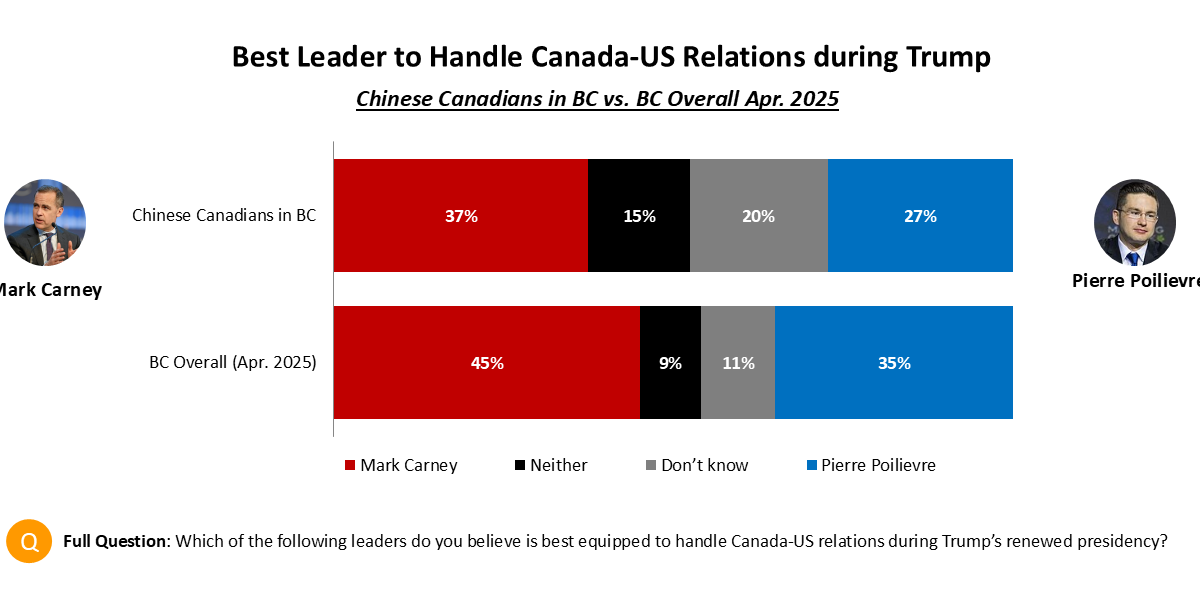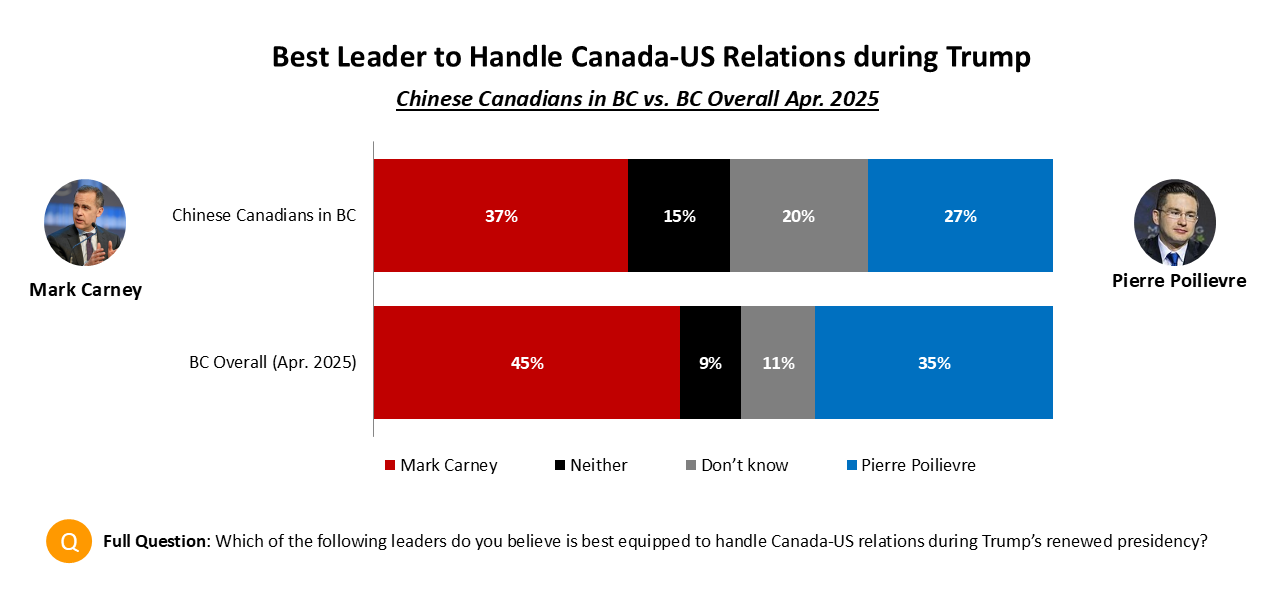
Chinese Canadians in BC are deeply concerned about US trade tensions, and their trust in the US has declined.
As the Federal election campaign comes to a close, Chinese Canadians in British Columbia are paying close attention to international dynamics that could shape the future of Canada.
Today, the Canada Committee 100 Society (CCS100) and Innovative Research Group (INNOVATIVE) are releasing the findings of a new survey of Chinese Canadians in British Columbia – focused on the current Federal election, attitudes towards the Trump administration’s trade policies, and international relations more broadly.
Anxiety about tariffs drives support for economic independence. 87% of respondents said they are concerned about the tariff threat from the US, slightly higher than the 80% reported among British Columbians overall. There is also clear support for a shift in Canada’s global economic strategy. 59% of Chinese Canadians in BC say that Canada should reduce its economic reliance on the US, while only 17% favour closer ties.
Trust in the US has declined since 2020. In light of the tariff dispute, Chinese Canadians in BC are now less trusting of the US compared to a similar survey conducted in 2020. Just 29% now say Canada can trust the US in a dispute, down from 39% in 2020. In contrast, Mexico saw a 24-point increase over the same time period, China saw a 12-point increase, and trust in other countries has remained steady.
Approval of the government’s response is high. More than half (58%) of Chinese Canadians in BC approve of the federal government’s response to the tariff threat, on par with 56% in BC overall. When asked who would be best to handle Canada-US relations during Trump’s presidency, 37% of BC Chinese Canadians favour Carney vs. 27% who say Poilievre, though compared to BC overall more say that neither leader would be best or that they are unsure (35% vs. 20%).
 The Conservatives lead by 7-points among Chinese Canadians in BC. Despite high approval for the government’s handling of the tariff threat and a preference for Carney to handle the issue, more respondents said they would vote Conservative (43%) than Liberal (37%) in the upcoming election. Support for the NDP was also lower among Chinese Canadians in BC than it was in a comparable survey of BC overall (8% vs. 16%).
The Conservatives lead by 7-points among Chinese Canadians in BC. Despite high approval for the government’s handling of the tariff threat and a preference for Carney to handle the issue, more respondents said they would vote Conservative (43%) than Liberal (37%) in the upcoming election. Support for the NDP was also lower among Chinese Canadians in BC than it was in a comparable survey of BC overall (8% vs. 16%).
Compared to BC overall, Chinese Canadians in BC were more likely to say it is “time for a change in government” (72% vs. 67%) and they were less likely to agree that “The Liberals may have their problems but they are still the best party to form government” (38% vs. 45%).
The online survey was conducted among a representative sample of 533 Chinese Canadians in BC, aged 18 and older, between April 4th and 17th, 2025 with the final sample weighted to a sample size of 500.
Often, Chinese Canadians who speak a language other than English or French and those who are more recent immigrants are underrepresented in survey research. To reach a representative sample of the entire Chinese Canadians community in BC, this survey combined sample from traditional online survey panels with referrals through social networks and community groups facilitated by CCS100. As such, this is not a probability sample. Respondents were given the option to complete the survey in Traditional Chinese, Simplified Chinese, English or French and the results were weighted using the latest Statistics Canada Census data to reflect the actual demographic composition of the Chinese community in BC by immigration status, period of immigration, country of origin, age, and gender.
Click here to read the full report!




































